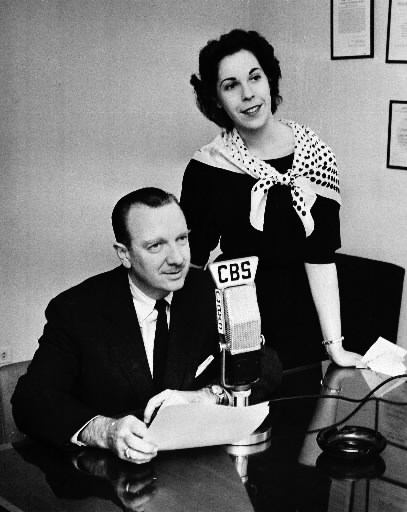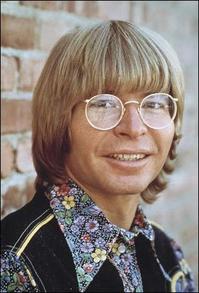
This photo has been running in newspapers and on websites throughout the country along with stories about legendary anchorman Walter Cronkite. The caption says it’s Cronkite and someone named Sandra Nemser broadcasting the CBS radio show Answer Please in 1958.
The caption doesn’t say who Sandra Nemser is, but I know: that’s my mother. In fact, that photo is one that we had hanging on the living room wall when I was growing up.
Through all of our childhood, mom, who later became Sandra Waldman, was blasé about her association with Cronkite. “Oh it was very early in his career.”
But of course as kids, my brother and I thirsted for any bits of information mom could give us about Cronkite during those early radio days. What was he like? “Very professional, very smart, and extremely friendly and nice,” she recalled this weekend. The daily show ran on the CBS radio network at 6 pm (as best she can remember), answering reader questions about the news.
Though my mom lost touch with Cronkite over the years, they were colleagues at the time of her marriage to my father. Cronkite was the witness at their wedding. This led to some interesting family speculation about one arcane matter of Judaism. As I recall, when orthodox rabbis started exerting more control in Israel some time in the 1970s, they frowned upon marriages that didn’t follow proper Jewish procedures. Orthodox Rabbis were needed, and certainly the key witnesses to the wedding had to be Jewish.
We thought: what a fun test case we would make! Let’s take my parent’s Jewish wedding certificate to Israel and dare them to declare that it was invalid because the witness wasn’t Jewish — just go ahead and say that the Most Trusted Man in America wasn’t good enough for this marriage!
When I see this familiar photo, though, my stronger emotions are not about Cronkite but about my mother. We were always intensely proud that she was pioneering journalist at a time when few women were. Before CBS, she worked Associated Press, in Boston and at the United Nations. Though she eventually left that profession, she never stopped teaching me good journalism’s core values.
Mom, like Cronkite, practiced journalism in an era when commentators didn’t sniff at the notion of “objectivity.” Nowadays, some bloggers and advocacy journalists declare, “there’s no such thing as objectivity” and chide reporters who practice brainless evenhandedness. My sense is that most old timers had no illusions that objectivity was achievable in the purest sense but they believed that they had a moral obligation to aspire toward objectvity and fairness. That was just what mainstream journalism meant, and if you didn’t think it was important to try, you had no business being that kind of journalist.
Thank you mom, and Walter, for teaching me what great, classic journalism is.
More from Beliefnet and our partners

